Special Report
America's Most Hated Companies

Published:
Last Updated:

A company can live or die by its reputation. Year after year, the vast majority of familiar companies and brands maintain — or build — their bond with the American consumer by offering dependable products and services and by cultivating a clean image.
Maintaining the public’s confidence is not a foregone conclusion. A single misstep — such as a price hike or tone-deaf tweet — can be enough to keep corporate public relations departments scrambling.
In other cases, corporate blunders rise above the threshold of an honest mistake. Public perceptions of an internal scandal, a toxic work environment, lax security, or unethical business practices can be enough to garner disdain from a large segment of American consumers — and in recent months there was no shortage of such revelations in the business world.
Reviewing a range of information, including major news events from the last year, customer survey results from the American Customer Satisfaction Index, employee reviews on Glassdoor, as well as our own annual customer satisfaction survey, 24/7 Wall St. identified America’s most hated companies.
Many companies on this list are struggling with discrete incidents that may be remedied with time and strategic public relations campaigns. For others, problems appear much more deeply ingrained within the company’s culture or business model.
Click here to see America’s most hated companies.
Click here to see our detailed findings and methodology.
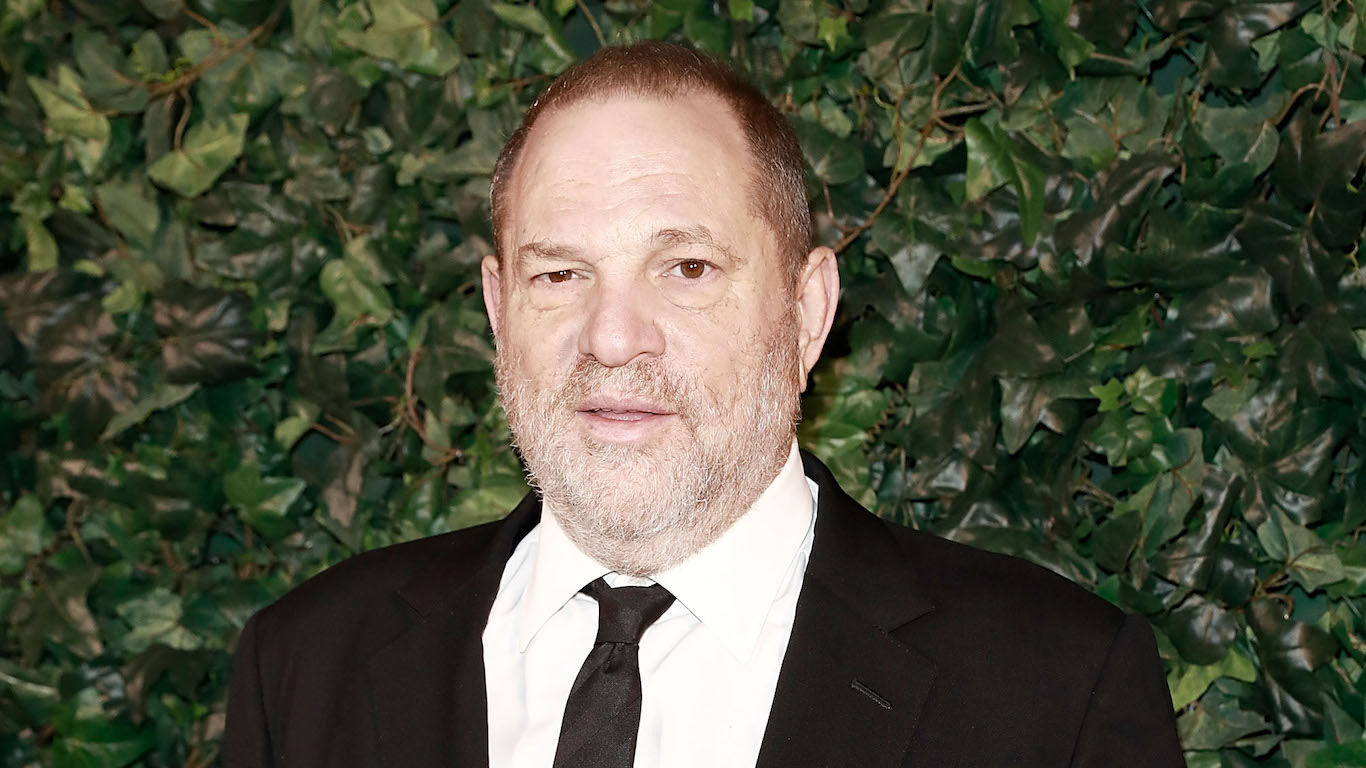
20. The Weinstein Company
Once the darling of the American independent film movement in the 1990s, and the producer or distributor of over 80 Oscar-winning films, Harvey Weinstein is now one of the mosted hated public figures in the United States. Weinstein has been engulfed in controversy since an October 2017 New York Times expose revealed multiple accounts of sexual abuse committed by the disgraced movie mogul. Since the story was published, dozens of other sexual assault victims have spoken out against Weinstein.
Much of the public outrage over the growing scandal has been directed at The Weinstein Company’s leadership, which may have been complicit in Weinstein’s actions. One complaint filed with the U.S. District Court in the Southern District of New York alleges that the company knowingly enabled the criminal behavior of its co-founder Weinstein. The board of TWC fired Weinstein three days after the Times’ expose, after several board members had stepped down themselves. The Weinstein Company will likely be forced to completely rebrand or dissolve as a corporate entity.
[in-text-ad]
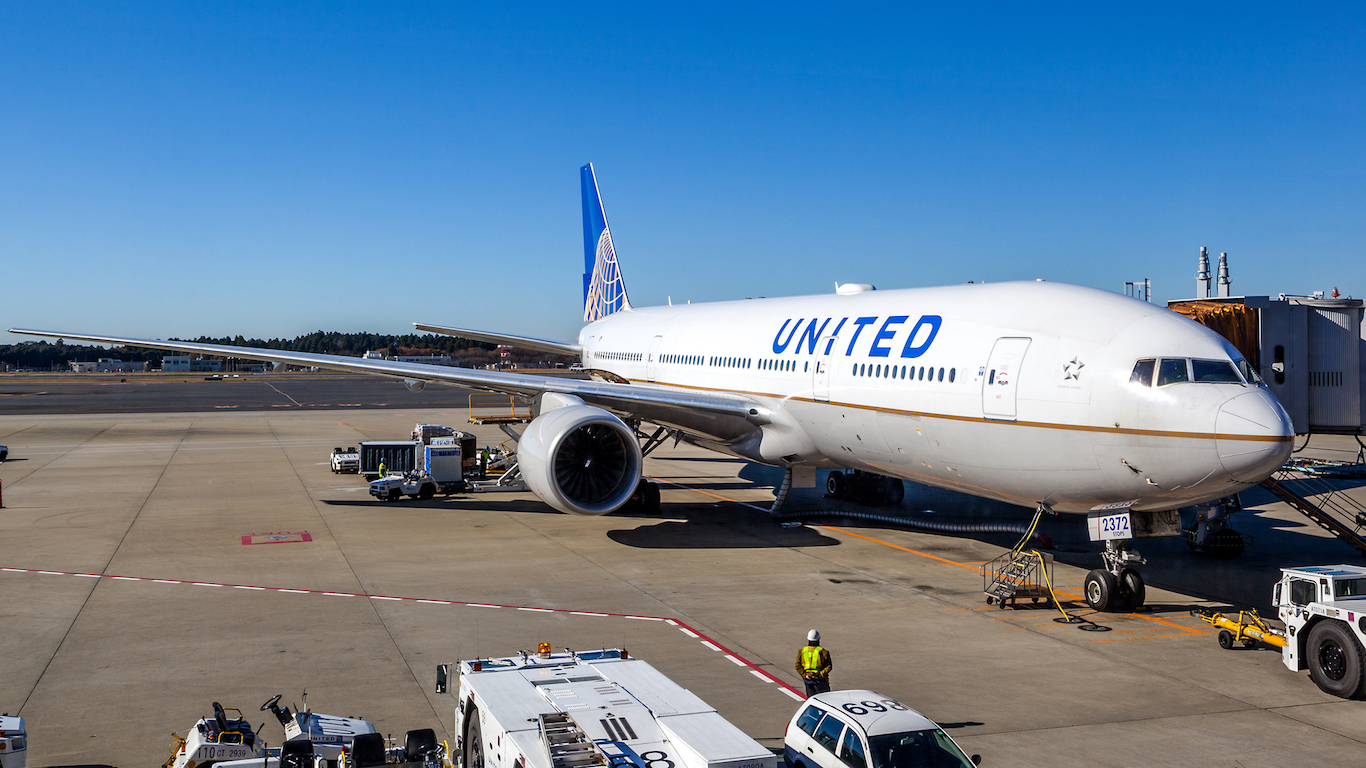
19. United Airlines
The video of a passenger being forcibly removed from his seat on an overbooked United Airlines flight went viral last year, sparking outrage across the country and triggering a public relations crisis for the Chicago-based company. United’s handling of the incident only made matters worse as many perceived CEO Oscar Munoz’s apology as half hearted and dismissive.
United’s stock dropped 4% in the days following the incident, wiping as much as $1 billion off the company’s market value. The company has since made considerable efforts to regain investor and customer confidence. Munoz announced measures that include increased monetary incentives to leave an overbooked flight, reduced overbooking, additional employee training, and reduced paperwork for lost luggage reimbursement. Still, the company ranks near the bottom among airlines for customer service. United Airlines scored a 70 out of 100 on the 2017 American Customer Satisfaction Index, well below the average score of 75 among U.S.-based airline companies.

18. Facebook
Since the 2016 presidential election, Facebook has been scrutinized by lawmakers and media outlets for acting as a medium for fake ads and news designed to be incendiary and divisive. While initially downplaying its role, in mid-2017 Facebook’s chief security officer made public that the company was paid some $100,000 for ads connected to 470 inauthentic Facebook pages that were likely operated out of Russia. A Facebook official also noted that the vast majority of these ads appeared aimed at amplifying political and social divisions — often specifically targeting Muslims and the Black Lives Matter movement. In a reversal of his position from one year prior, in September 2017 Facebook CEO Mark Zuckerberg pledged to make it much harder for such manipulation to occur on the social media platform.
Currently, American consumers are relatively dissatisfied with Facebook. The company has a score of 68 out of 100 on the ACSI scale, nearly the lowest of any social media platform and well below the industry average of 73.

17. CenturyLink
Telecom company CenturyLink is one of the largest internet and telephone service providers in the United States. It is also one of the most widely disliked in an industry of companies with poor reputations. The company’s ACSI score of 59 for its internet service is among the worst of any company in any industry. In the customer service poll commissioned with Zogby, nearly 43% of respondents reported a negative customer service experience, one of the largest shares of any major company.
In addition to low customer satisfaction, CenturyLink receives a subpar rating from employees — less than half of all workers submitting reviews on Glassdoor would recommend the company to a friend. Employee satisfaction may fall even further in near future. In early January 2018, the company announced it was suspending merit-based raises for all employees.
[in-text-ad-2]

16. Monsanto
Few companies have garnered as much public ire as Monsanto, or for as long. Over the past century, the company has been behind some unambiguously harmful chemical products, including DDT, PCBs, and Agent Orange — a herbicide used extensively in Vietnam that has been blamed for 400,000 deaths and half a million birth defects. The use of DDT and PCBs was banned in the 1970s. Many also take issue with the company’s production of genetically modified organism seeds, or GMOs.
Capping off a long rap sheet of chemical products that have posed grave public health threats, Monsanto is the subject of a class-action lawsuit alleging that exposure to the company’s popular weed killer, Roundup, caused cancer in hundreds of consumers. While the National Cancer Institute recently announced that the product is not conclusively carcinogenic, California is fighting to require cancer warnings to be printed on the weed killer.

15. Comcast
The industries in which Comcast works – internet service, subscription television service, and fixed-line telephone service – are hotbeds for customer dissatisfaction. Yet Comcast does even worse than its competitors. On the American Customer Satisfaction Index, consumers rate Comcast just 60 out of 100 for its internet service, 58 out of 100 for its subscription television service, and 65 out of 100 for its fixed-line telephone service — lower than the industry averages of 64, 64, and 70, respectively.
Comcast’s poor standing is not a recent development. The company was rated America’s most hated last year, based on similar metrics. Some 47% of customers who responded to 24/7 Wall St. and Zogby’s customer satisfaction survey reported a negative experience with the company – the largest share among all companies considered. The company was forced to pay a $2.3 million fine in 2016 over allegations that it charged customers for unauthorized services and equipment.
[in-text-ad]

14. Uber
Few companies had a worse year in 2017 than ride sharing app Uber. An essay published by former Uber employee Susan Fowler in mid-February detailed a prevailing culture of sexism and sexual harassment at the company. Less than a month later, a video of then company CEO Travis Kalanick getting into an argument an Uber driver surfaced, prompting him to make a public apology. Uber also faced a number of lawsuits in 2017, including one filed by Alphabet, Google’s parent company, for alleged theft of intellectual property related to self-driving car technology. As a result of the myriad of lawsuits and investigations into sexual harassment, 13 company executives resigned in the first half of 2017 alone, including the June departure of Kalanick.
The company’s trouble’s did not end with Kalanick’s departure. A Wall Street Journal article published in September revealed the company is the subject of an FBI investigation for illegally interfering with rival company Lyft. Later that month, the company lost its license to operate in London due to a lack of corporate responsibility.
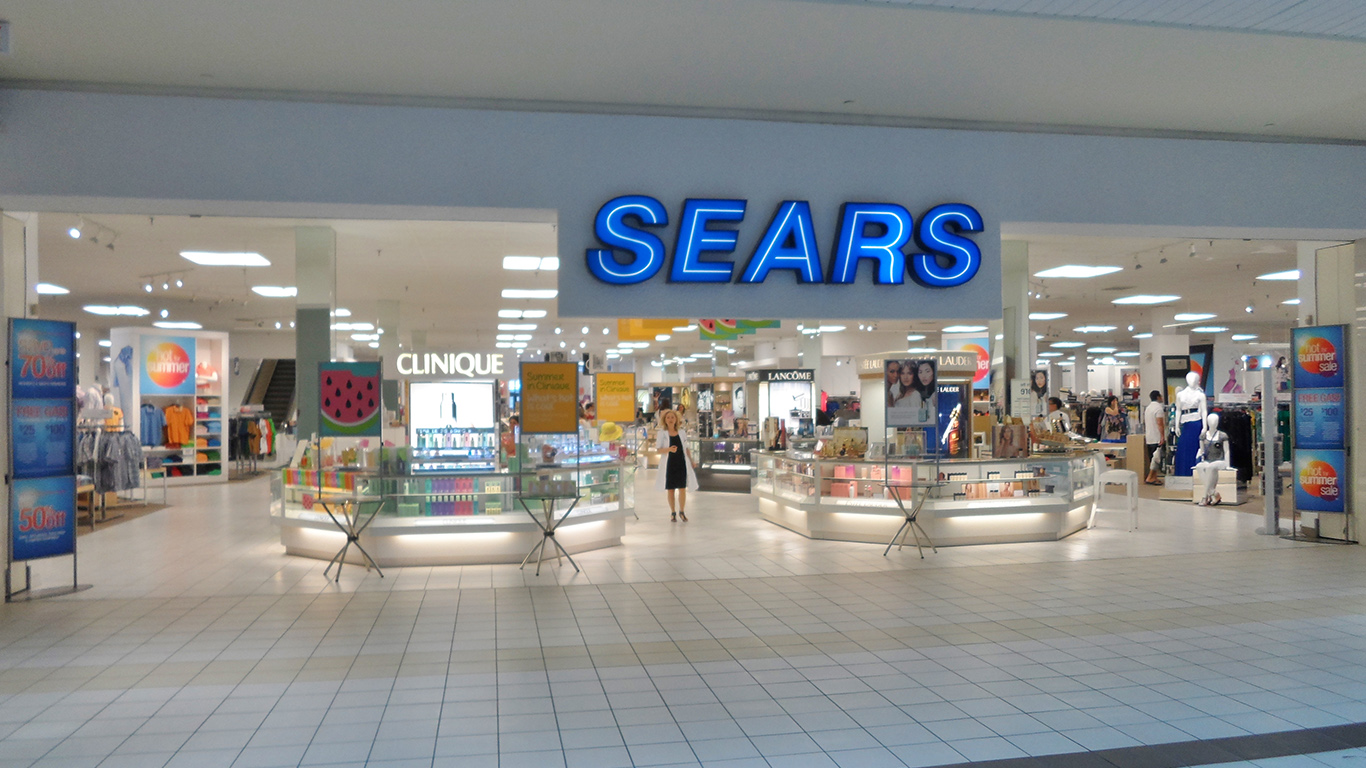
13. Sears Holdings
Over one-third of respondents in a Zogby’s poll conducted in partnership with 24/7 Wall St. reported a negative customer experience with Sears, one of the largest shares of any company. Sears also has one of the lowest customer satisfaction scores of any department store in the ACSI. Consumers rate Sears just 77 out of 100, lower than any department store other than Ross and Walmart. Sears’ falling sales are another indication of the company’s declining popularity among consumers. The company reported $22.1 billion in sales in fiscal 2017, less than half its $53.0 billion revenue in 2007. The number of Sears and Kmart stores — both owned by Sears Holdings — in the United States fell from 3,467 to less than 1,300 over that time, and the company plans to close over 100 more stores through the spring of 2018.
Declining revenue and imminent store closures likely do little to boost employee morale. Only 33% of Kmart employees and 28% of Sears employees would recommend the job to a friend, according to Glassdoor reviews.
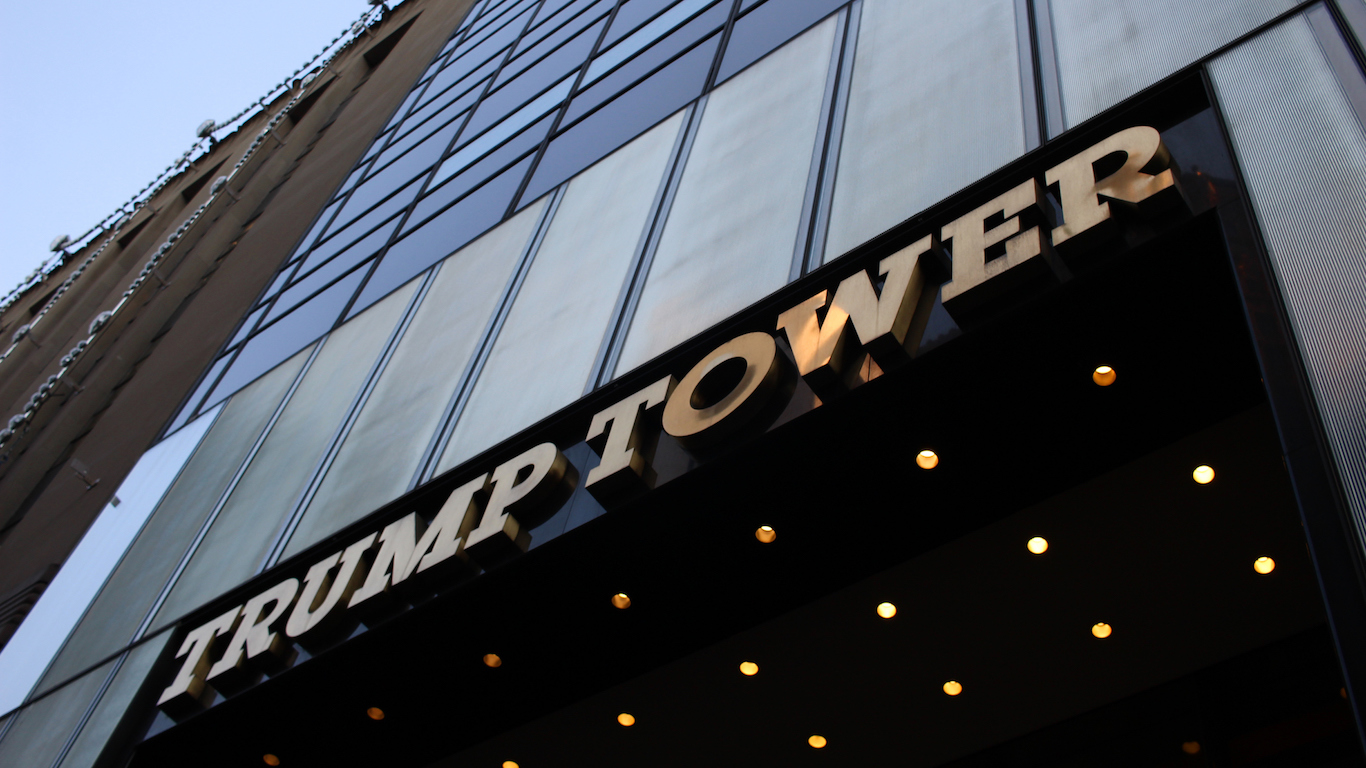
12. The Trump Organization
Donald Trump is the least popular president in the history of the United States — at least at this point in his presidency. Trump’s approval rating sat at only 35% at the end of December. Before Trump, the lowest approval rating of any president one year into his term was Ronald Reagan’s 49%. For many of the majority of Americans who disapprove of the president, anything bearing the Trump name is equally disliked.
The commander in chief is also the former head of The Trump Organization, a conglomerate controlling golf courses, a hotel chain, international real estate investment, and a winery. The company is now under the microscope of Democratic lawmakers. Earlier this year, 17 Democratic members of the Oversight and Government Reform Committee signed a letter addressed to the panel’s Republican chairman urging the organization to further investigate potential conflicts of interest between Trump’s corporate interests and his obligations as a public servant.
[in-text-ad-2]
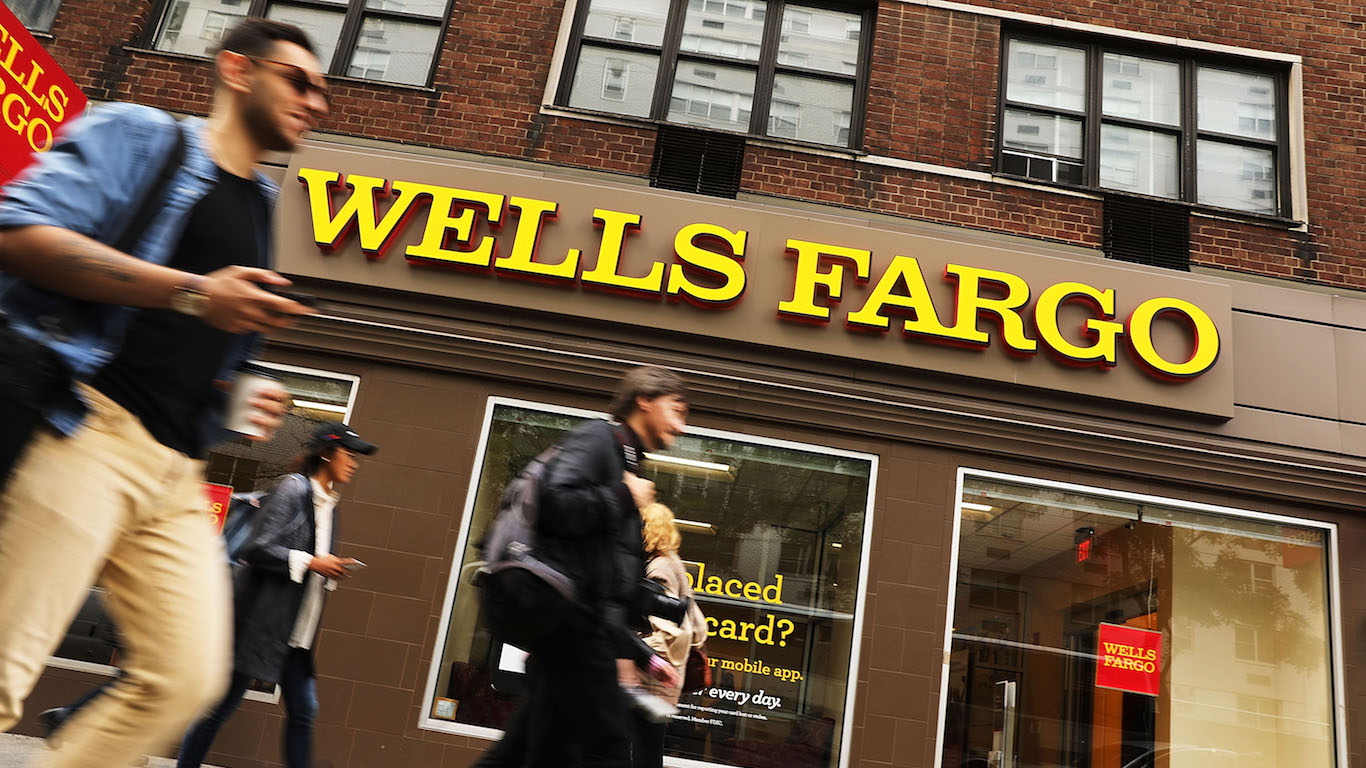
11. Wells Fargo
Following revelations that bank employees created millions of fake accounts without customers’ knowledge in an effort to meet quotas handed down from the top, John Stumpf stepped down as Wells Fargo’s CEO in 2016. The company’s problems related to the scandal did not stop there. In mid-2017, the bank revealed that the fraud was more pervasive than initially thought, and that employees may have created as many as 3.5 million accounts, up from the 2.1 million reported in 2016.
Compounding the public relations crisis, the bank was also found to have charged over half a million customers for car insurance they did not ask for and did not need. As many as 20,000 of those customers may have had their vehicles impounded for defaulting on the unnecessary insurance charges. Further, in October 2017 news broke that the bank charged over 100,000 customers late fees on mortgage payments when the delays were in fact the fault of the bank. Wells Fargo ranks as the worst American bank with a rating of just 74 out of 100 on the American Customer Satisfaction Index — well below the 81 industry average.

10. Cigna
Few industries are as widely detested as the insurance industry, and American consumers appear to dislike health insurance giant Cigna the most. In a Zogby poll commissioned by 24/7 Wall St., some 34% of respondents reported a negative customer experience with Cigna – the largest share of any other company in the industry. Additionally, the company scored only 66 out of 100 on the American Customer Satisfaction Index, well below every other American health insurance company.
Allegations of fraud do not help the company’s public image. In recent years, Cigna has been the subject of multiple lawsuits alleging the company artificially inflated medical costs, causing some customers to pay as much as 10 times the true cost of their medical services. Even many of the company’s own employees are dissatisfied. Negative employee reviews on Glassdoor regularly cite inadequate health insurance benefits.
[in-text-ad]
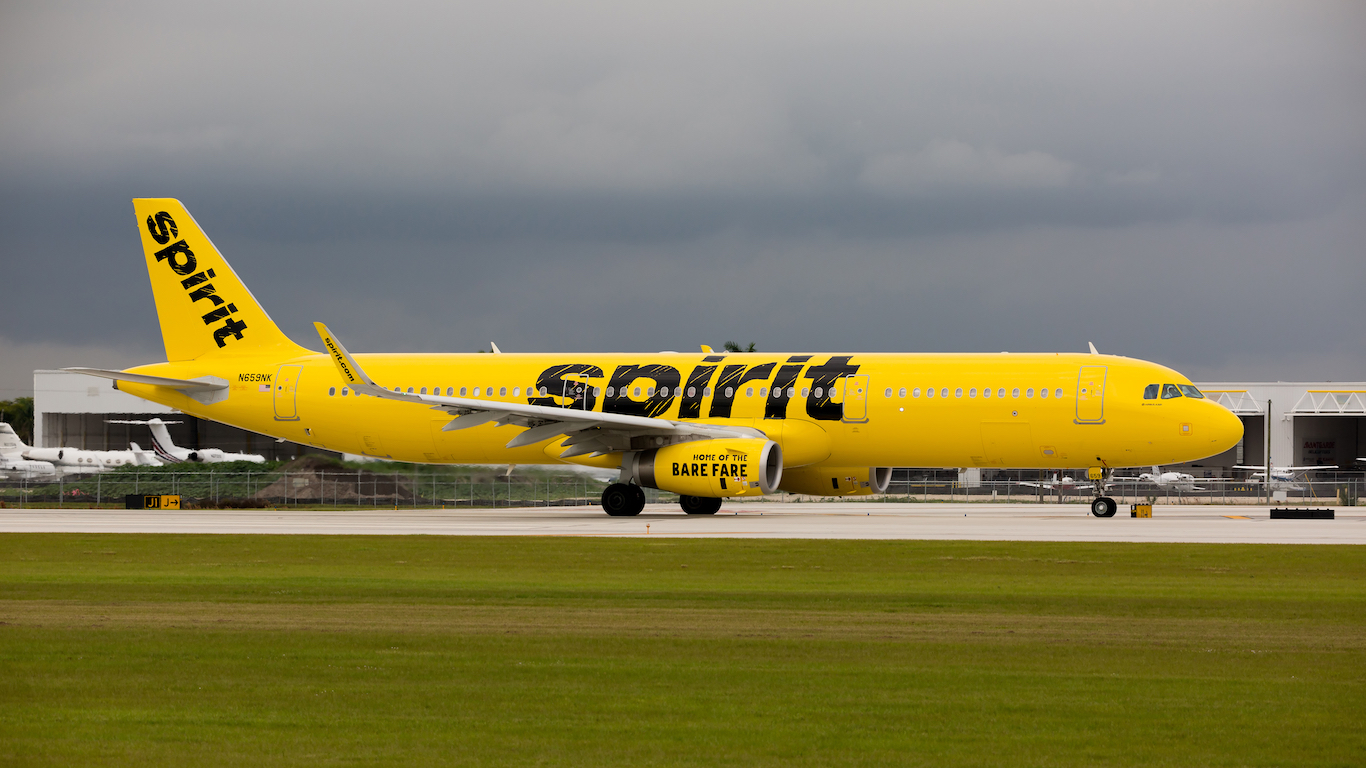
9. Spirit Airlines
Because flying can often be stressful, many airlines attempt to make the experience as comfortable as possible for their customers. Spirit Airlines follows a different philosophy, aiming to strip air travel down to its basics by ensuring no frills, inexpensive flights.
This business model, however, is not always appreciated. Spirit has the absolute lowest customer satisfaction score among airlines, according to the ACSI, with a rating of 61 out of 100, compared to the industry average of 75. Additionally, 44.4% of respondents in the customer service poll commissioned with Zogby reported a negative experience with the company. This is the third largest share among all the companies considered.
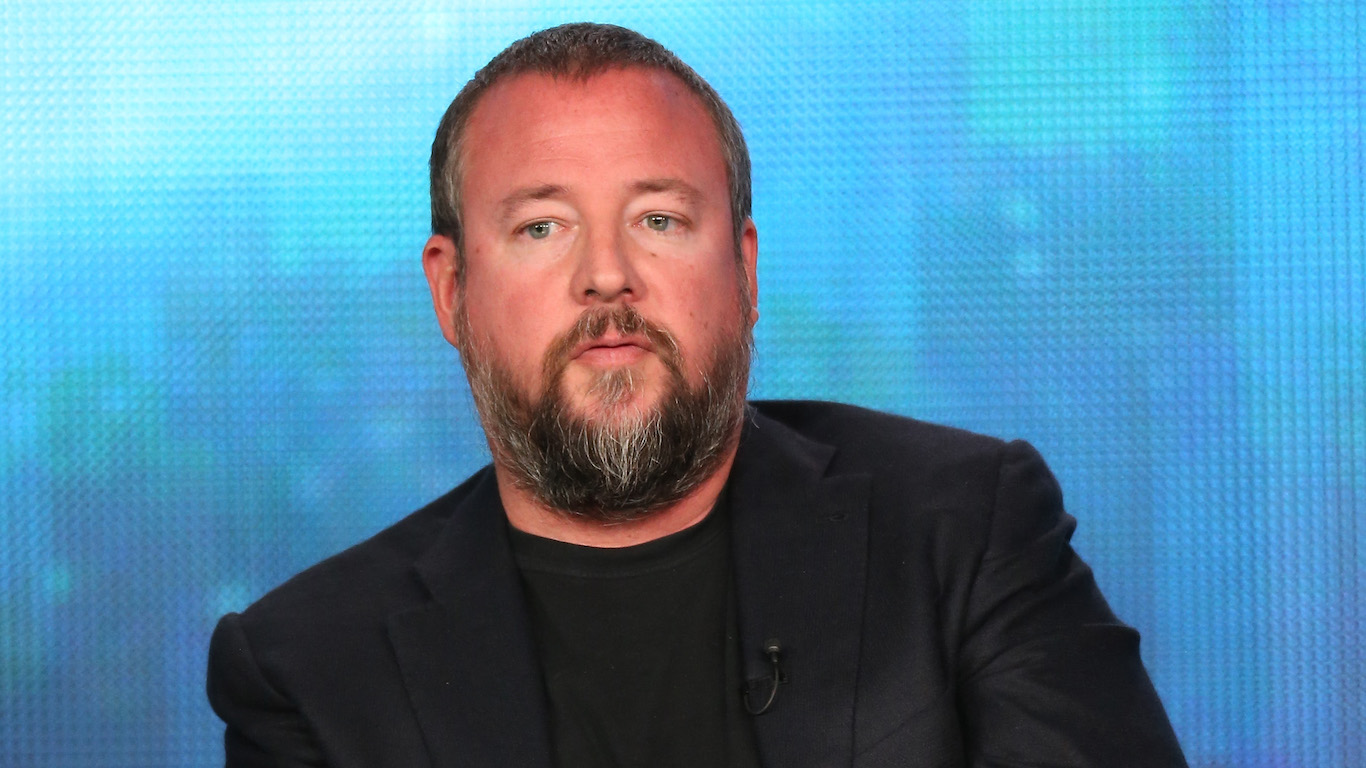
8. Vice Media
Known as a cutting-edge — and deliberately edgy — media organization largely aimed at the millennial market, Vice has been a disruptive force in the world of digital news content. Like a number of other better-established competing news organizations, including NBC and Fox, Vice has recently been embroiled in a public relations crisis due to allegations of systemic sexual harassment.
A New York Times investigation published in late December 2017 uncovered multiple settlements in sexual harassment lawsuits dating back to 2003. The accounts detailed a toxic culture of sexism and sexual harassment, permitted and often carried out by senior members at the company. During the course of the Times’ investigation and amid the company’s own probe into the allegations, Vice fired three employees. The sexual misconduct outlined in the Times expose also led to the suspension of two senior executives — president Andrew Creighton and chief digital officer Mike Germano.
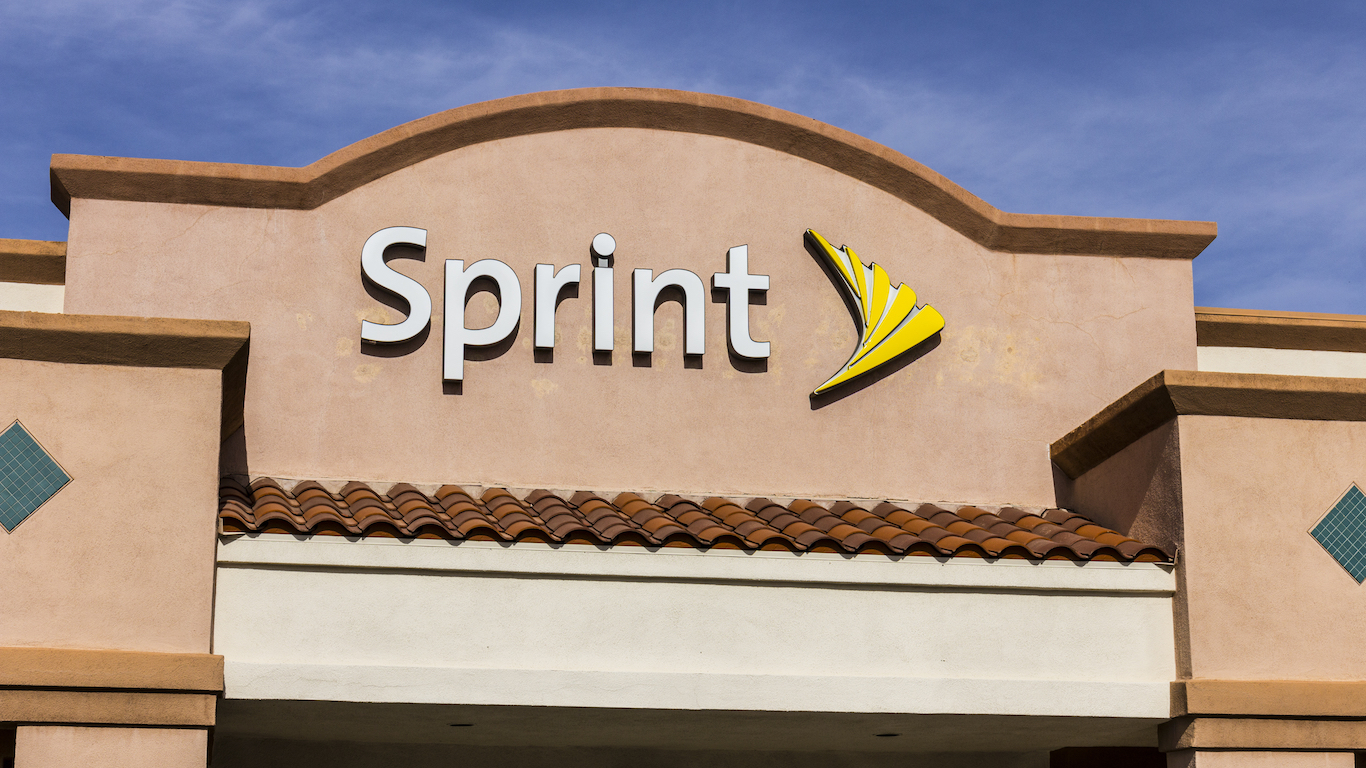
7. Sprint
Some 44% of respondents in Zogby’s poll conducted in partnership with 24/7 Wall St. reported a negative customer experience with Sprint – the fifth largest share among the 150 companies included in the survey. This is a higher share than all other mobile telephone companies surveyed such as AT&T, T-Mobile, and Verizon Wireless.
Poor customer experiences are likely due in part to lackluster service. According to wireless network performance insight company RootMetrics, Sprint ranks behind all of its competitors in speed and data, and second to last in calling, texting, and overall reliability. The company’s customer service may be improving, however. According to data from the American Customer Satisfaction Index, satisfaction with Sprint has increased 4% from 2016 to 2017.
[in-text-ad-2]
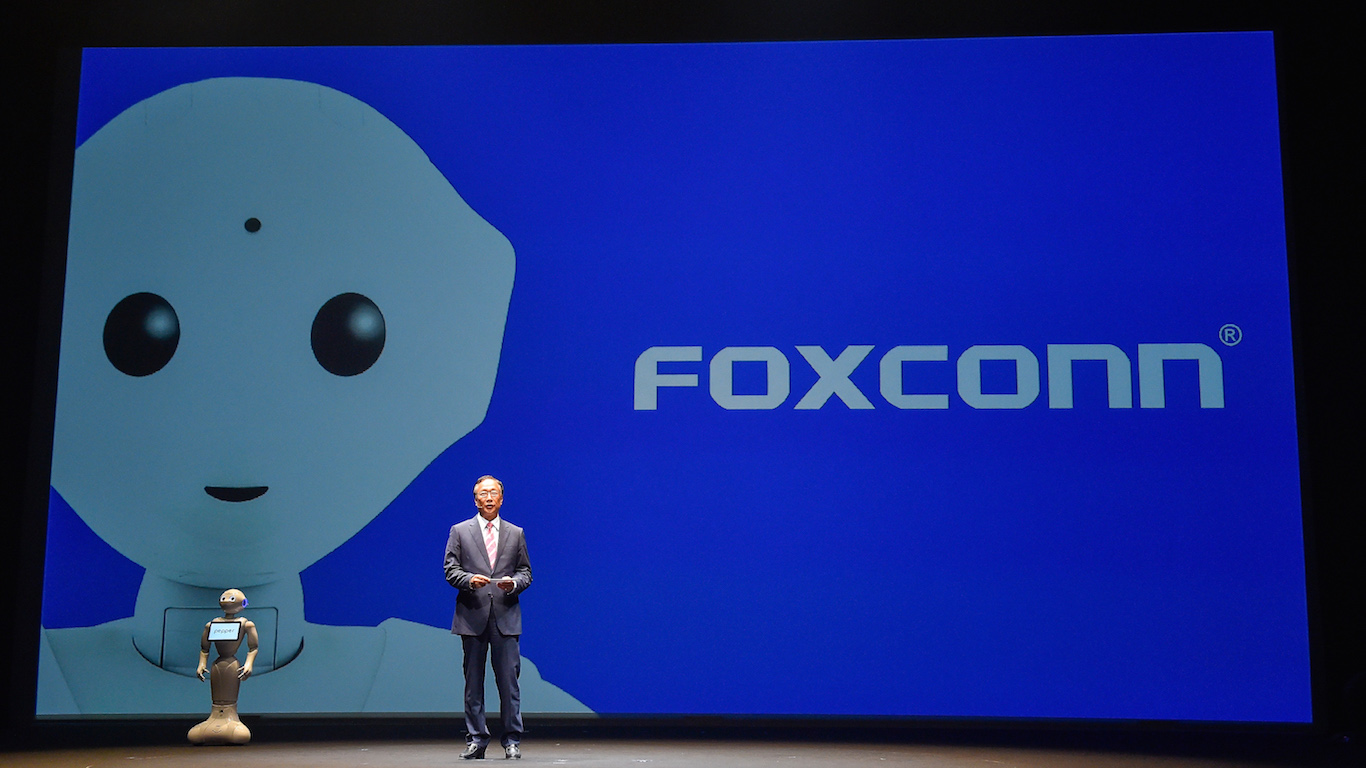
6. Foxconn Technology Group
While the name Foxconn may not be as familiar as some of the other names on this list, the company is responsible for manufacturing and assembling consumer electronics for some of the biggest brands in the world, including Apple and Nintendo. The company captured the world’s attention in the last decade with a series of employee suicides and suicide attempts that were apparently driven by poor working and living conditions on the company’s compound in Shenzhen, China. In what most considered to be a tone-deaf response to the suicides, which were mostly carried out by workers throwing themselves from the building where they worked, the company installed safety nets.
The company has recently made headlines once again in the United States. Currently, homeowners in Wisconsin are suing the company for improperly using eminent domain — the power to take private property for public use — to build a complex in Mount Pleasant. Foxconn wants to build the complex in an area where multiple homeowners will lose their land. By some estimates, the new complex will cost taxpayers and state and local governments $4.5 billion in road improvements and tax incentives for the company.
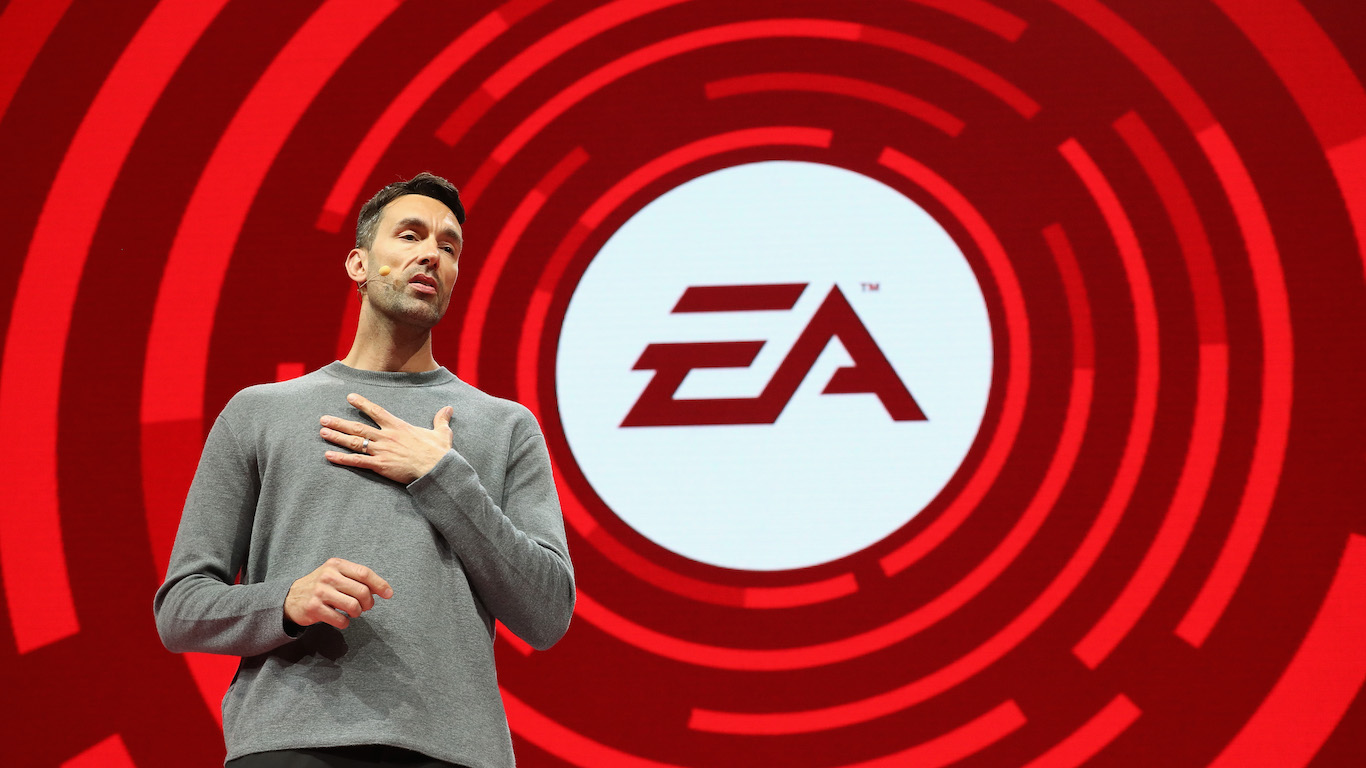
5. Electronic Arts
Electronic Arts, or EA, has been making highly successful video games for decades. EA has produced dozens of wildly successful franchises, including “The Sims,” “Battlefield,” and “Need for Speed,” and the annually-sold, fervently-purchased sports titles, Madden and FIFA. While it has helped shape the face of gaming, EA has also unfortunately earned a reputation as the industry’s evil empire. There are many examples of EA buying up smaller studios or operations for a specific game and then either stripping the game of its originality or running the studio into the ground.
The company added to its infamy recently during the early release days of the latest installment of another of its big franchises, “Star Wars Battlefront II.” EA released an early access version of the game, and immediately drew widespread ire from gamers, who discovered that unlocking some of the more popular characters required over 40 hours of gameplay or spending hundreds on in-game purchases. The public outcry surrounding the perceived greed led the studio to temporarily suspend in-game purchases.
[in-text-ad]
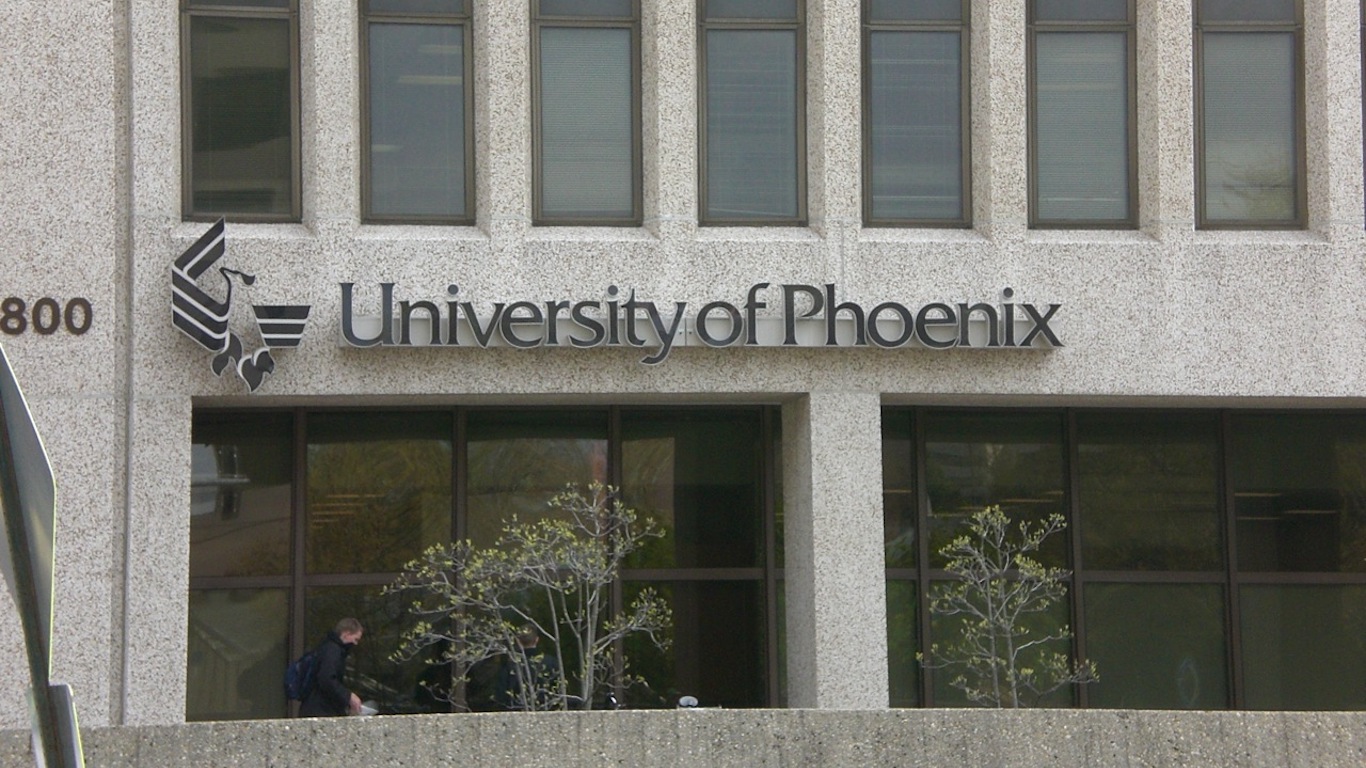
4. University of Phoenix
The University of Phoenix is perhaps the most well-known for-profit college in the country. In recent years, the school’s parent company, Apollo Education Group — as well as a number of other for-profit colleges — has been the subject of a series of state and federal investigations that allege the company used for their aggressive and deceptive recruiting, advertising, and financial aid practices. After alleging that the University of Phoenix preyed upon veterans with little chance of graduating in order to receive federal aid money, the Department of Defense briefly barred the school from recruiting on military bases.
Negative perceptions of the University of Phoenix may be one factor contributing to the decline in enrollment at the school. In 2012 the university announced it would be closing 115 locations and laying off 800 employees — approximately 5% of its workforce. Between 2010 and 2017, student enrollment fell by 70%. The downsizing is likely doing little to boost employee morale. According to data obtained from Glassdoor, only 32% of University of Phoenix employees would recommend working at the school to a friend.
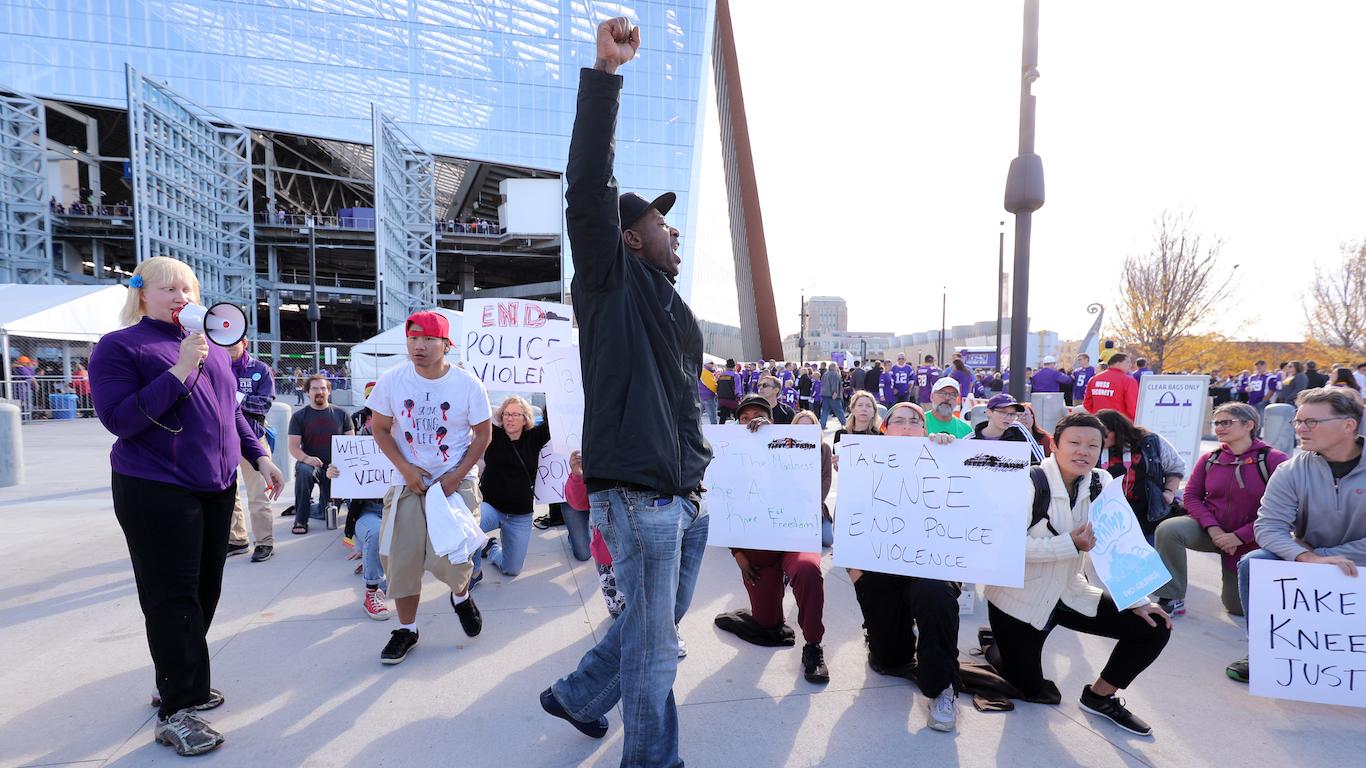
Despite growing concerns and evidence, it has taken the NFL more than two decades to finally acknowledge the link between head injuries and their long-term effects — and to initiate concussion protocol policy. The NFL’s conduct in this matter has garnered significant criticism from the American public. The growing politicization during games this season gave even more Americans a reason to dislike the organization. President Donald Trump tweeted in September 2017 that the league should fire or suspend players who kneel during the national anthem — a trend that started in 2016 by now unsigned quarterback Colin Kaepernick to raise awareness of racial inequality in the United States. The act of kneeling is itself controversial, garnering support from some who claim it is a protected form of free speech in support of a righteous cause, while others claim it is disrespectful to the flag.
Though it remains the most popular professional sports league in the United States, the NFL’s viewership dipped considerably in 2017, due in part to boycott movements driven by the kneeling controversy. Nationally televised games in the current season averaged only 15.1 million viewers, down from 16.6 million last season.
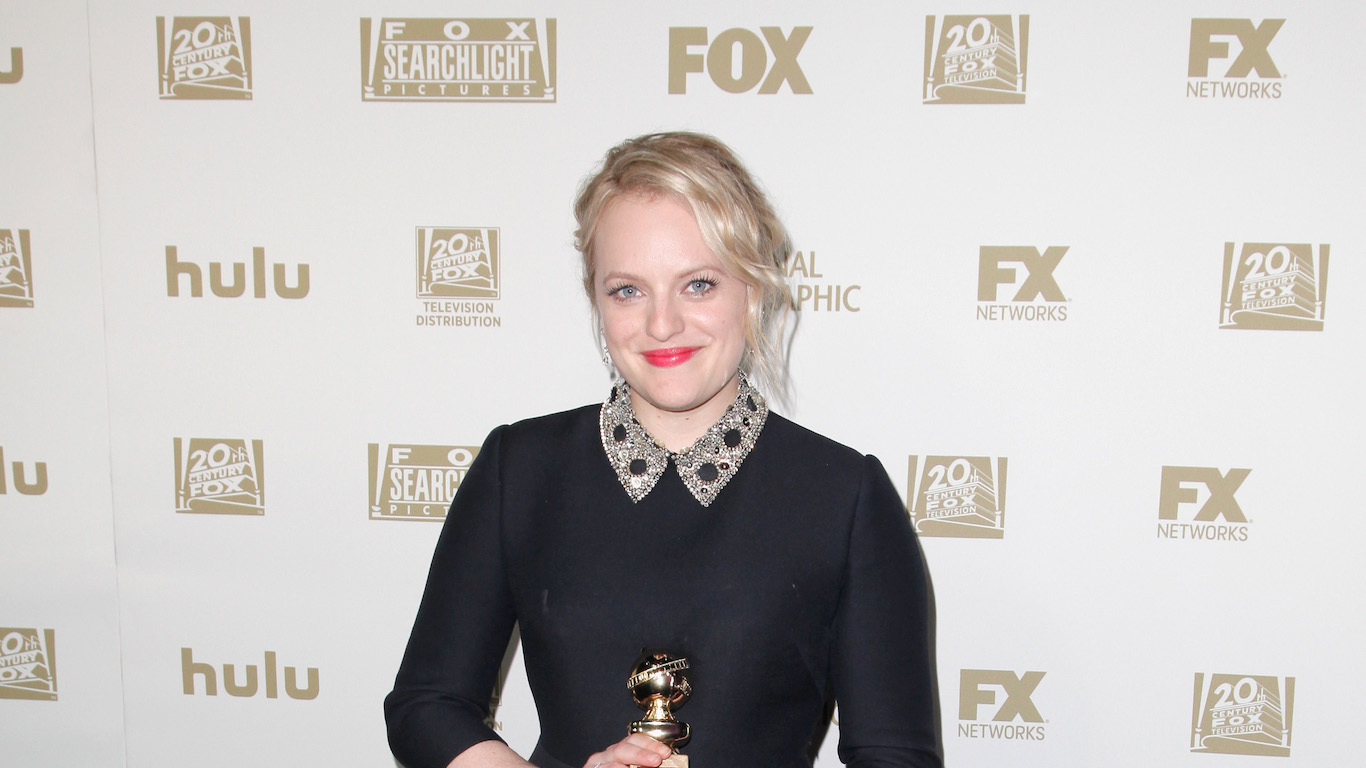
2. Fox Entertainment Group
Fox Entertainment Group is the parent company of Fox News Channel, one of the most popular cable channels in the United States — and also one of the most divisive. The network has a blatant right-wing slant, and politically conservative Americans overwhelmingly comprise its viewer base. As a result, the media outlet is either ignored or disdained by a large share of Americans with left-leaning political beliefs.
This past year, Fox may have estranged even more Americans. The company — like many others on this list — was embroiled in scandal in 2017. Revelations that Bill O’Reilly — then anchor of “The O’Reilly Factor,” which was once the most popular news show on cable — had settled multiple sexual harassment allegations to the tune of $13 million led to the show’s cancellation. Similar allegations of sexual misconduct led the late Fox News CEO and founder Roger Ailes to resign in 2016.
[in-text-ad-2]
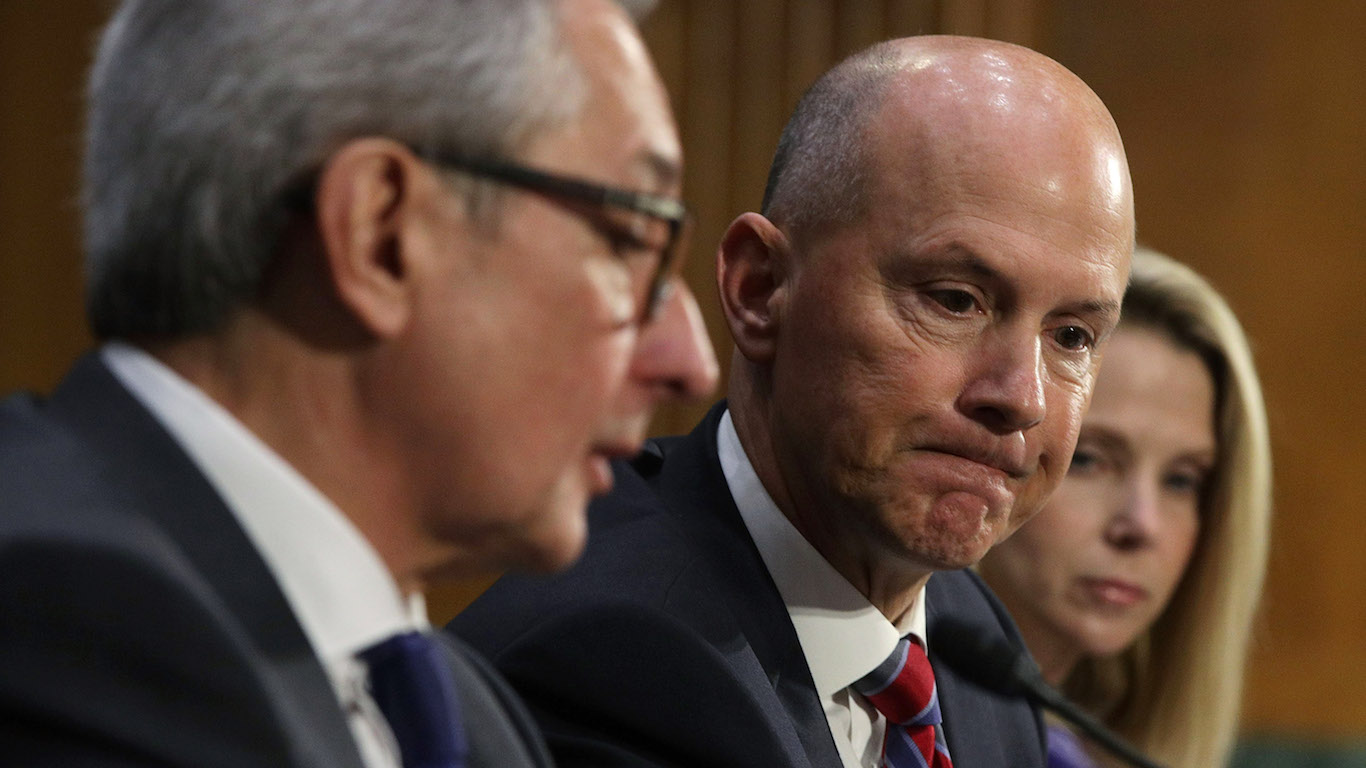
1. Equifax
Consumer credit reporting agency Equifax became the target of one of the largest data breaches of all time last year. Between mid-May and July 2017, criminal hackers infiltrated the company’s servers and accessed personal data — including driver’s license numbers, Social Security numbers, and birthdays — of more than 145 million Americans, potentially exposing them to the threat of identity theft.
Perhaps even more troubling than the security flaws exposed in the hack itself was the way the company handled it. Despite discovering the breach on July 29th, the company waited a month and half to make a public announcement. The public was further outraged when the company forced consumers to agree not to join a class-action lawsuit in order to see if their information was hacked. Lawmakers have yet to take action to reduce the likelihood of such incidents from happening again.
Detailed Findings & Methodology
2017 was marred with revelations of corporate scandals. Allegations of sexual misconduct — often carried out or tacitly condoned by executives — did untold damage to the public image of multiple companies on this list. Fox News Channel, Vice, Uber, and The Weinstein Company each made the list this year, at least partially, due to sexual harassment scandals. While most of these companies’ reputations are likely redeemable, others, such as The Weinstein Company, will be forced to completely rebrand or dissolve as a corporate entity.
Other scandals that dropped a company’s reputation enough for it to rank among the most hated would not likely have been possible without social media. Viral videos of a customer being violently removed from a United Airlines flight, the former CEO of Uber berating a driver, and continuing revelations of Facebook’s role as a platform for misinformation leading up to the 2016 presidential elections were made possible by emerging technology and are relatively novel in a historic sense.
In contrast, nearly half of the companies on this list are hated for more traditional reasons, such as negligence and deceptive business practices. Equifax ranks among the most hated companies this year after a massive data breach exposed the personal information of millions of Americans. The company’s late and muted response did not instill confidence in its customers. Similarly, both Wells Fargo and University of Phoenix make this year’s list due to ongoing fallout tied to deceitful, and potentially criminal, business practices.
Other companies infamous for overwhelmingly negative customer experiences, including Comcast, Sprint, and Spirit Airlines, are no strangers to this list. In other companies, such as Sears Holdings, employees are often more disdainful of the company than consumers.
To identify the most hated companies in America, 24/7 Wall St. reviewed a variety of metrics on customer service, employee satisfaction, and financial performance. We considered consumer surveys from a number of sources, including the American Customer Satisfaction Index (ACSI) and a Zogby Analytics poll created in partnership with 24/7 Wall St. We also reviewed employee satisfaction based on worker opinion scores on Glassdoor — this is not a Glassdoor commissioned report. We also accounted for current events that have impacted the public’s perception of companies.
If you’re like many Americans and keep your money ‘safe’ in a checking or savings account, think again. The average yield on a savings account is a paltry .4% today, and inflation is much higher. Checking accounts are even worse.
Every day you don’t move to a high-yield savings account that beats inflation, you lose more and more value.
But there is good news. To win qualified customers, some accounts are paying 9-10x this national average. That’s an incredible way to keep your money safe, and get paid at the same time. Our top pick for high yield savings accounts includes other one time cash bonuses, and is FDIC insured.
Click here to see how much more you could be earning on your savings today. It takes just a few minutes and your money could be working for you.
Thank you for reading! Have some feedback for us?
Contact the 24/7 Wall St. editorial team.